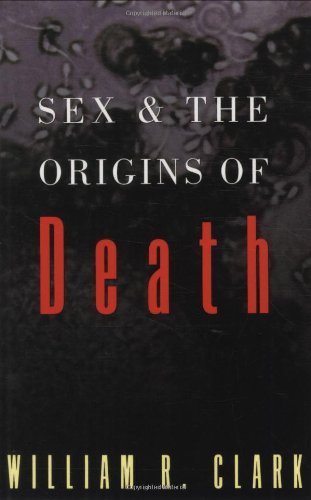Well I just had to laugh (I even saw the photographs) . . .
I first heard of the custom when living in Singapore. Strippers hired to perform before an image of the deceased as part of the ceremonies pending the actual cremation. I thought the idea was to give the deceased one last good time. Maybe it’s hard to grasp if we’re not familiar with the Chinese custom in crowded Singapore of setting up a marquee or special area for the coffin of the deceased on the property of the apartments where he or she lived, or nearby, with friends and relatives coming to visit over the days prior to the cremation ceremony. Candles, decorations of models of the things the deceased loved in life (paper cars, boats, money…), other religious paraphernalia all around, and lots of chairs and water bottles for the visitors. There would always be someone there to maintain the vigil, even through the night.
And some (by no means all — unless I was protected by the locals from ever finding out) of these spaces, I learned, even arranged for a private striptease dancer to perform before the picture of a male deceased.
And all of that was before the last day when crowds would assemble, with musicians and dancers, to drive the coffin off in a specially decorated truck leading a street procession to the place of cremation. What a send off.
Well, today I was reminded of all of the above with the following news:
China cracks down on funeral strippers hired to entertain mourners, attract larger crowds
Hired to attract crowds! Now that was different from the Singapore custom, that’s for certain. If I can ever remember where I filed it I will dig out the Singapore newspaper photo of the Chinese dancer there definitely facing and performing for the deceased. But in China the image is definitely indicative of a more general entertainment:
Now that’s definitely not what Singapore Chinese modesty was all about. Unless, as I said, I was protected because I was considered to be just another foreigner who would not understand.
What piqued my more serious interest in the story this time, however, was the suggestion that the ceremony might be traced back to “fertility worship”. One last ditch effort to ensure the deceased would still be able to, well… I’m not quite sure what. Anthropologists would be able to explain it, no doubt.
And given the eclectic interests of Vridar, I am further reminded of the Gospel of John. See Novelistic plot and motifs in the Gospel of John where I look at an article by Jo-Ann Brant discussing the way that gospel plays with the idea of a marriage anticipated by Jesus really being his death.
It all seems rather appropriate, I supposed, given that what made death possible (as opposed to evolving like ever dividing cells that go on forever and never die) was sex. Perhaps the story of Adam and Eve and their Fall is all about the way cell death evolved to remove and discard the less good bits from the mix.
If you enjoyed this post, please consider donating to Vridar. Thanks!




Sex-and-death may have been conjoined in Anglo-Saxon / Germanic culture.
I have vague memories from the 1960s (~15 yr of age) being taught that to appreciate this or that poem by John Donne where the poet more or less implores Jesus to ravish him we should realize that Donne was playing with a pun common in the era where ‘to die’ = ‘to have an orgasm’ or ‘to ejaculate’.
We were not told what was behind the pun, but this lesson did provoke gruesome thoughts of whether this wordplay originated with the era’s fascination with with public hangings and associated details (see Pepys), or with erotic autoasphyxiation; cf more recently Wm S. Burroughs (Naked Lunch etc).
I also have vague memories from my teenage years of having read that centuries before Donne’s time the verb ‘to fuck’ had ‘to die’ as a meaning. I remember having thought (perhaps read???) that ‘fuck you’ originally meant something like ‘drop dead.’ I also remember once having subsequently tried to verify that ‘fuck’ had meant ‘die’ but failed to verify it. I am not going to try now. I am definitely not going to try to verify my even vaguer and even less trustworthy memory of somehow gotten the impression that the German cognate ‘ficken’ once meant ‘to die.’ (Disclaimer: my comments here may be based on age-corroded memories.)
Indulge me if I digress shamelessly. (From my adolescence onwards my favorite novelist was Laurence Sterne.) If I try to edit these comments properly I’ll never submit them.
Where else do we perhaps find apparent incongruencies with funerals? We often hear or read that it is common for people to be surprised to find other people or even themselves breaking out in laughter at sad moments in funerals. I personally have not witnessed such events. I am not going to check out the various monographs that I imagine might have been written on this putative phenomenon. For the sake of argument I will assume the phenomenon is real.
Where else? I have not read much fiction for decades, so others may come up with more and better examples of the juxtaposition of mourning with contradictory emotions or drives, but Rabelais* has Grandgousier** sharing a perfect love with the most wonderful wife. She dies giving birth to Gargantua who from the onset is pretty obviously just about the most wonderful son one could hope to have. Grandgousier doesn’t know what to do: mourn because the worst thing ever has happened to him or laugh uproariously because he has the greatest son on earth, who is already doing gargantuan brilliant and crazy stuff beyond what one could have imagined. So he oscillates rapidly between crying or raging on the one hand and laughing on the other.***
I have limited experience with delightful ritualistic partying at Irish wakes and have only read about the old Dixieland jazz bands that would play sombre music on the way to the funeral or burial and then wild music on the way back, but there are those things also.
Also do yourselves a favor by listening to Rocco’s Wake (1985) by the Boston Punk band The Classic Ruins. http://www.youtube.com/watch?v=bZO71ygf4n8 . Lyrics droll, relevant—for ex.:
‘…..In fact as far as I could see / the general attitude was better him than me. / We all pretended to have the blues, but all our minds were on free booze/ and all the goodies that each man could take/ because refreshments were gonna be free at Rocco’s wake….We stepped outside to smoke a spliff,/ then went back inside to view his stiff. /The funeral home had shaved his head, /but no one cared at all because he was dead….’
Whether or not this or that hypothesis about this or that situation is correct (strippers being helpful to get people to Chinese funerals, food and booze to attend Rocco’s wake; this or that physiological change of sex mimicking death or at least unconsciousness) there is another sort of way of looking at these jarring juxtapositions that does not necessarily contradict these other particular hypotheses.
All of these behaviors, whether formalized (Dixieland bands) or not (as in spontaneous laughter), or possible plays on words (death/orgasm), highlight the extreme weirdness of death, and thus of life, and thus of existence, and the lack of it. Some (dying and having an orgasm; going from somber music to raucous music) feature transitions other than the transition of death, seemingly so as to emphasize it or harmonize with it, but they all tend to point attention, emotional and intellectual, intuitive as well probably, on change and uncertainty via pointing to contradictions (laughter vs solemnity; cynicism vs guilt over not feeling guilty over Rocco’s death). They emphasize the importance of the phase transition, the passing, and yet mock both it and the apparent normality that precede it and will presumably follow it.
They provoke the believer to believe all the more, the atheist to believe all the less, and the agnostic &c.
Could have done better but I have to go. Maybe someone else knows whether it is my memory that made up the medieval or earlier alternative meaning of ‘fuck’ as ‘die’ and possibly also ‘ficken’ or will be less lazy than I.
(* Rabelais = FWIW my 2nd favorite novelist from adolescence onwards, and 1 of Sterne’s 2 favorites)
(** however as I noted I haven’t read much fiction—including much of Rabelais– for decades other than Sterne. It might be Gartantua’s wife who died giving birth to Pantagruel rather than Grandgousier’s wife giving birth to Gargantua. I’m not going to look it up right now. Feel free to correct me on this and any of my other errors. I make lots of them.)
(*** Rabelais or one of his characters made a comment somewhere that always stuck with me: that the most perfect love imaginable always ends badly. Either one partner dies before the other or else things eventually otherwise don’t go right between them one way or another. Irrelevant to strippers and funerals, but not in too distant an orbit perhaps? Strong erotic ties, where the physical and the so-to-speak spiritual can’t necessarily be perfectly be teased out from each other, and death. Strippers at a funeral is almost like a poem taking off on a tangent about this tragic fact about love.)
Thanks for the comment, Jerome. It’s a fascinating topic.
It happened a few times in Taiwan, mostly ’80s and early ’90s with gangster types, but it never really caught on.
Same with paper cars, houses etc.- Taiwanese burn a horrendous amount of “ghost money”, to the point that the government has encouraged people to burn “ghost credit cars” instead (“but the ancestors won’t know to use them” is the excuse usually given), but paper objects are not usual.